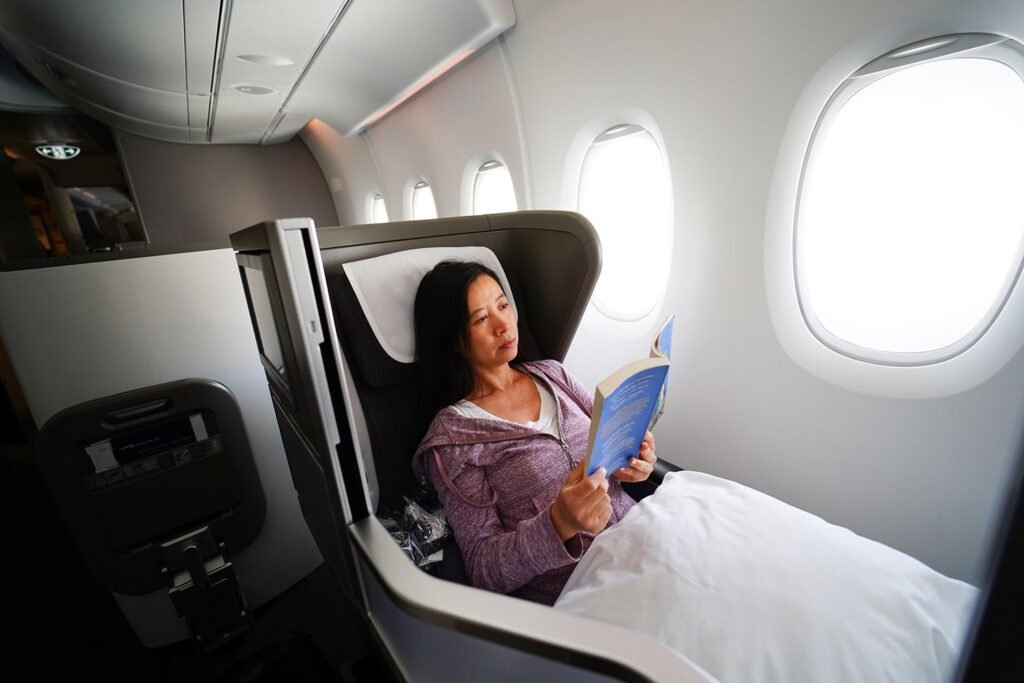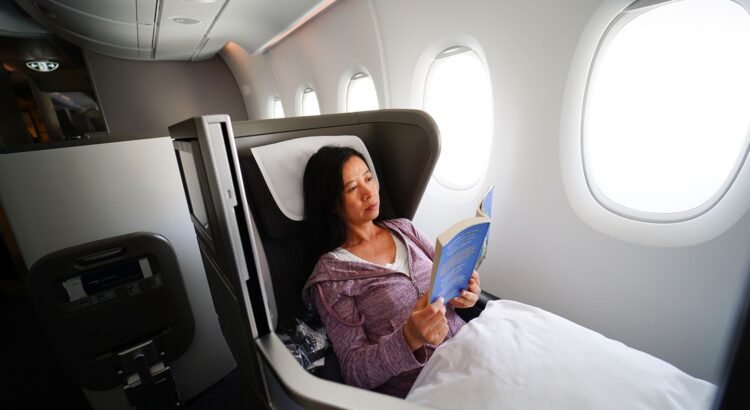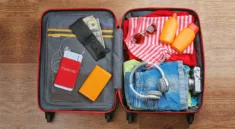
Traveling long distances by air can be an exciting adventure, but the aftermath of a long-haul flight often comes with its own set of challenges. Fatigue, jet lag, dehydration, and disrupted sleep patterns can significantly affect your energy levels and enjoyment of a new destination. Fortunately, there are practical and effective ways to stay energized and adjust quickly after a long-haul journey. From pre-flight preparation to post-landing recovery tips, here is your complete guide to bouncing back fast and making the most of your travels.
Understanding the Impact of Long-Haul Flights
Before exploring the solutions, it’s important to understand why long-haul flights take such a toll on the body. Flights over six hours, especially those that cross multiple time zones, disrupt your internal body clock (circadian rhythm). This mismatch between your home time zone and your new destination can result in jet lag—a temporary sleep disorder marked by fatigue, irritability, difficulty concentrating, and gastrointestinal problems.
In addition to time zone disruption, the cabin environment also plays a role. Low humidity, pressurized air, and limited movement can lead to dehydration, muscle stiffness, and poor blood circulation. Combining these factors with irregular meals and reduced sleep quality often leaves travelers feeling drained upon arrival.
Pre-Flight Preparation: Start Strong
1. Sleep Strategically Before You Fly
Start adjusting your sleep schedule a few days before departure. If you’re flying east (e.g., from New York to Paris), try going to bed and waking up an hour earlier each day. If flying west (e.g., from London to Los Angeles), shift your schedule later. Gradual adaptation helps align your body clock with your destination.
2. Hydrate Well
Start hydrating 24 hours before your flight. Avoid excessive caffeine or alcohol, as both can contribute to dehydration. Drink water consistently throughout the day before you fly, and carry a refillable water bottle with you.
3. Eat Light and Nutritious
Choose nutrient-dense, easily digestible meals before your flight. Avoid heavy or greasy foods, which can disturb your digestive system during air travel. Foods rich in complex carbohydrates and lean proteins can help sustain your energy during the journey.
4. Pack Essentials for Comfort
Bring sleep masks, noise-canceling headphones or earplugs, neck pillows, and cozy socks to help you rest better onboard. Wearing comfortable clothing and layering appropriately also helps maintain your body temperature in fluctuating cabin climates.
During the Flight: Optimize Your In-Flight Routine
1. Stay Hydrated
Airplane cabins have low humidity, which can accelerate dehydration. Drink water regularly throughout the flight—aim for about 250 ml (8 ounces) every hour. Avoid or minimize consumption of alcohol, coffee, and soda.
2. Move and Stretch
Long periods of immobility can cause muscle stiffness and increase the risk of blood clots. Every hour, try to get up and walk the aisles or do simple stretches at your seat. Ankle rolls, shoulder shrugs, neck stretches, and knee lifts can help keep your blood flowing.
3. Adjust to Destination Time
Reset your watch or phone to your destination’s time zone as soon as you board. Try to eat and sleep according to the local time. This mental shift helps your body begin adjusting even before you land.
4. Nap Smartly
If you’re feeling tired, take short naps of 20–30 minutes to prevent grogginess. Avoid long naps that disrupt your ability to sleep at night upon arrival. Use a sleep mask and neck pillow to enhance comfort and block distractions.
Upon Arrival: Fast Track Your Recovery
1. Get Some Sunlight
Natural light is one of the most powerful tools for resetting your internal clock. Spend time outdoors in the morning or early afternoon to help regulate your circadian rhythm. If it’s evening at your destination, try to avoid bright lights and prepare for sleep.
2. Take a Short Walk
Physical activity promotes blood circulation and increases alertness. A brisk walk around the airport or your hotel neighborhood helps reduce stiffness and elevates mood. It also provides a light cardiovascular boost to counter fatigue.
3. Stay Awake Until Local Bedtime
It might be tempting to crash immediately after arriving, but try to stay awake until a reasonable local bedtime. Power through the day with light activities and caffeine in moderation. Avoid napping unless you truly can’t function.
4. Eat a Balanced Meal
Choose light meals rich in fruits, vegetables, and proteins. Avoid heavy or high-sugar foods, which can cause energy crashes. Balanced nutrition supports both physical energy and mental clarity.
Sleep Hygiene Tips: Adjusting Your Sleep Cycle
1. Create a Sleep-Conducive Environment
Ensure your sleeping space is dark, quiet, and cool. Use blackout curtains or sleep masks, white noise machines or earplugs, and adjust the room temperature to your comfort level.
2. Consider Melatonin Supplements
Melatonin, a natural sleep hormone, can help reset your internal clock. Taking a small dose (0.5–3 mg) about 1–2 hours before your intended bedtime can help you fall asleep more easily. Consult your doctor before using any supplements.
3. Limit Screen Time Before Bed
Blue light from phones, tablets, and laptops can suppress melatonin production. Turn off screens at least 30–60 minutes before bed. If needed, use night mode or blue light-blocking glasses.
4. Establish a Wind-Down Routine
Take a warm shower, do some light stretching, read a book, or listen to soothing music. A consistent bedtime routine signals your body that it’s time to rest and aids in faster adjustment.
Natural Energy Boosters: Stay Alert Without Over-Caffeinating
1. Green Tea or Matcha
Green tea contains moderate caffeine and L-theanine, which promotes calm alertness. Matcha offers a sustained energy lift without the crash often associated with coffee.
2. Stay Active
Physical movement—even just light stretching or yoga—can provide a burst of natural energy. Gentle exercises like sun salutations or breathing exercises also help reduce stress.
3. Stay Hydrated with Electrolytes
In addition to water, drink beverages with natural electrolytes (such as coconut water or sports drinks) to replenish minerals lost through dehydration and travel fatigue.
4. Use Essential Oils
Peppermint or citrus essential oils can help uplift your mood and energize your senses. Dab a small amount on your wrists or temples, or inhale directly from the bottle.
Mind-Body Techniques: Balance and Recovery
1. Practice Mindful Breathing
Deep breathing techniques (such as the 4-7-8 method) can calm your nervous system and improve mental clarity. Mindful breathing can be especially useful when adjusting to new environments or combating anxiety from jet lag.
2. Try Meditation or Yoga Nidra
Short guided meditations or Yoga Nidra (a deep relaxation technique) can enhance recovery, reduce mental fatigue, and support better sleep. Just 10–20 minutes of practice can make a noticeable difference.
3. Limit Mental Overload
Avoid scheduling important meetings, sightseeing marathons, or high-pressure activities immediately after landing. Give yourself time to ease into your new surroundings.
Bonus Tips for Frequent Flyers
- Use Travel Apps: Apps like Timeshifter and Uplift offer personalized jet lag plans based on your itinerary and sleep patterns.
- Choose Flights Strategically: Overnight flights that allow sleep during travel can reduce disruption. Try to arrive in the evening if you want to sleep soon after landing.
- Upgrade When Possible: Extra legroom, reclining seats, or business class comfort can make a big difference on long-haul flights.
- Monitor Your Body: Be aware of signs of travel fatigue, dehydration, or illness. Responding early can prevent small issues from worsening.
Conclusion: Arrive Ready to Explore
Traveling long distances doesn’t have to mean losing days to jet lag or fatigue. With the right strategies before, during, and after your flight, you can stay energized, adjust quickly to your new time zone, and make the most of your travel experience. Whether you’re heading to a business meeting, cultural adventure, or family vacation, implementing these simple habits ensures you arrive refreshed, focused, and ready to embrace your destination.
Remember: hydration, movement, rest, and light exposure are your best allies. With preparation and mindfulness, your body and mind can adapt smoothly—so you spend less time recovering and more time exploring.




